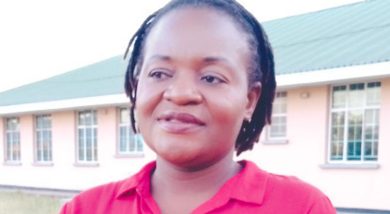Report exposes poorstate of health facilities
Findings of a Malawi Local Government Association (Malga) assessment show that 85 percent of public health facilities in five districts are in a state of neglect requiring immediate rehabilitation, with some without running water.
With support from Unicef, Malga sampled five districts nationwide and assessed 99 health facilities out of which it was established that only about 15 percent were in good condition.

Ministry of Health has since indicated that from its records, 196 public health facilities, including district hospitals and central hospitals, are in need of rehabilitation.
The Malga assessment shows that 40 percent of the sampled facilities in Dowa, Karonga, Mzimba, Mangochi and Balaka districts need major rehabilitation while 60 percent require moderate rehabilitation.
From the report, whose findings were released in May 2023, the worst hit is Dowa where 10 out of 16 health facilities need major rehabilitation, translating to over 60 percent.
Mangochi, the report shows, needs rehabilitation in 26 out of its 32 health facilities while Karonga reported that none of its facilities are in good condition, followed by Balaka with only nine percent of its facilities in good condition.
Reads the report: “All five local authorities reported that the absence of special provisions for health facility maintenance and rehabilitation in the district operational budgets [other recurrent transactions-ORT] is the main reason why over 85 percent of health facility buildings are in poor condition.”
Besides buildings being in a sorry state, the report further found that 23 percent of the 99 public health facilities have no running water in their maternity and outpatient departments.
Other challenges observed during the assessment are that 30 percent of health facilities run without incinerators and that of those with maternity amenities, 23 percent have no placenta pits, a situation that compromises the sanitary condition of health facilities.
In an interview yesterday, Malga executive director Hadrod Mkandawire blamed the state of public health facilities on delayed devolution of rehabilitation funds and functions to councils.
“It is only in the current financial year that government has partly devolved the rehabilitation funds for health facilities, and, only seven districts are benefitting. This is the very reason all the facilities have been left in dilapidated state,” he said.
In a telephone interview yesterday, Parliamentary Health Committee chairperson Mathews Ngwale described the findings as not surprising, saying while the report focused on health centres, almost all district hospitals save for new ones such as Phalombe, are in need of rehabilitation.
He said: “The issue is about funding. With limited resources, we have always encouraged government to prioritise procurement of drugs and, funds permitting, we can consider rehabilitation in phases not all at once for the development budget isn’t enough.”
Ngwale said at one point, they asked government to bail out all district health offices with outstanding water bills and connect health facilities with prepaid meters to manage bills and avoid disconnection.
Ministry of Health director responsible for infrastructure Dr. Sanderson Kuyeli acknowledged the challenges, saying the ministry is currently targeting seven districts with the rehabilitation programme.
He said: “There are 196 facilities nationwide in need of rehabilitation, an increase from 181 due to Cyclone Freddy-induced damage to facilities.
“For a long time, the funding in health sector has focused on commodity procurement over rehabilitation.”
However, Kuyeli said the district health budget now has a provision for infrastructure maintenance.
“Ideally, 10 percent of the total district health budget is supposed to go to infrastructure maintenance. However, due to pressing needs, the districts have not been able to allocate adequate resources for this cause,” he explained.
Kuyeli further said several facilities lacked water due to vandalism and theft of water reticulation materials, calling for collective efforts to arrest this challenge.
Malga, in partnership with Unicef Malawi, has been implementinga programme aimed at strengthening Malga’s budget advocacy efforts to enhance social service delivery at the local level.






One Comment